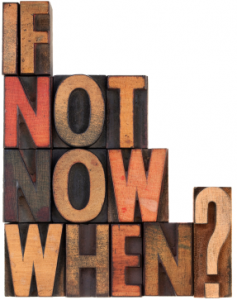 This phrase has been rattling around in my brain lately. What else can you do? It may be my mantra for this year. It seems applicable to almost every situation.
This phrase has been rattling around in my brain lately. What else can you do? It may be my mantra for this year. It seems applicable to almost every situation.
You’re unhappy in your job. What else can you do? Do you need to mend relations with a manager or co-worker? What’s making you so miserable? Is it the work you do or where you do it? If you need a change, what else can you do?
If you’re a manager frustrated by the performance of a staff member, what else can you do? What have you tried to get the person to do their job better? What’s worked in the past? Can the person be trained? Do they need to be replaced? What else can you do?
You want to lose weight and every fad diet or cleanse hasn’t worked. What else can you do? Unfortunately the answer might be eating less and exercising more but I’m sure there are those who will read that and think, what else can I do?
You worry about your children, young ones or grown. What else can you do? Because take it from me, worrying doesn’t work. It doesn’t prevent the bad or create some good. It generally just gets in the way of actually coming up with a new idea. So instead of worrying, ask what else can I do? Reach out, open the lines of communication, support them and unburden yourself. Because I’ve often found that while I’m being wracked by worry about my kids they’re out having a good time.
What else can you do is the phrase that frees you from repeating the mistakes of the past. In virtually every situation above and in countless others, doing nothing is a poor or unacceptable alternative. What else can you do is the first step toward trying something else and hopefully doing something better. What else can you do reminds us that there’s always something else you can do, something else you can try. You aren’t helpless and the situation isn’t hopeless. What else can you do is saying that there is something else I can do, I just haven’t figured it out yet. But there’s something. Everything turns out okay in the end, and if it isn’t okay, it isn’t the end.
What else can you do?




